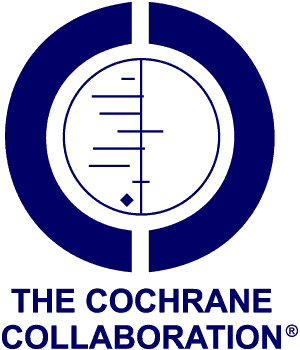
Abstract
BACKGROUND: Research shows that stroke patients and their families are dissatisfied with the information provided and have a poor understanding of stroke and associated issues. OBJECTIVES: To assess the effectiveness of information provision strategies in improving the outcome for stroke patients and/or their identified caregivers.
SEARCH STRATEGY: We searched the Cochrane Stroke Group Trials Register (last searched May 2007), the Cochrane Central Register of Controlled Trials (CENTRAL) (The Cochrane Library Issue 1, 2007), MEDLINE (1966 to March 2007), EMBASE (1980 to March 2007), CINAHL (1982 to March 2007), PsycINFO (1974 to March 2007), Science Citation Index and Social Science Citation Index (1981 to March 2007), Assia (1987 to March 2007), Index to UK theses (1970 to March 2007), Dissertation Abstracts (1961 to March 2007), ongoing trials and research registers, bibliographies of retrieved papers, relevant articles and books, and the Journal of Advanced Nursing. We also contacted researchers for additional information.
SELECTION CRITERIA: Randomised trials involving patients or carers of patients with a clinical diagnosis of stroke or transient ischaemic attack (TIA) where an information intervention was compared with standard care, or where information and another therapy were compared with the other therapy alone.
DATA COLLECTION AND ANALYSIS: Two review authors independently assessed trial eligibility and methodological quality and extracted data. Primary outcomes were knowledge about stroke and stroke services, and impact on mood.
MAIN RESULTS: Seventeen trials involving 1773 patient and 1058 carer participants were included. Eight evaluated a passive and nine an active information intervention. Meta-analyses showed a significant effect in favour of the intervention on patient and carer knowledge, one aspect of patient satisfaction, and patient depression scores. There was no significant effect on number of cases of anxiety or depression in patients, carer mood or satisfaction, or death. Qualitative analyses found no strong evidence of an effect on other outcomes. Post-hoc subgroup analyses showed that active information had a significantly greater effect than passive information on patient mood but not on other outcomes.
CONCLUSIONS: There is evidence that information improves patient and carer knowledge of stroke, aspects of patient satisfaction, and reduces patient depression scores. However, the reduction in depression scores was small and probably clinically insignificant. Although the best way to provide information is still unclear there is some evidence that strategies that actively involve patients and carers and include planned follow up for clarification and reinforcement have a greater effect on patient mood.
Source: KT+ Knowledge Translation, McMaster University, Hamilton, Canada
BACKGROUND: Research shows that stroke patients and their families are dissatisfied with the information provided and have a poor understanding of stroke and associated issues. OBJECTIVES: To assess the effectiveness of information provision strategies in improving the outcome for stroke patients and/or their identified caregivers.
SEARCH STRATEGY: We searched the Cochrane Stroke Group Trials Register (last searched May 2007), the Cochrane Central Register of Controlled Trials (CENTRAL) (The Cochrane Library Issue 1, 2007), MEDLINE (1966 to March 2007), EMBASE (1980 to March 2007), CINAHL (1982 to March 2007), PsycINFO (1974 to March 2007), Science Citation Index and Social Science Citation Index (1981 to March 2007), Assia (1987 to March 2007), Index to UK theses (1970 to March 2007), Dissertation Abstracts (1961 to March 2007), ongoing trials and research registers, bibliographies of retrieved papers, relevant articles and books, and the Journal of Advanced Nursing. We also contacted researchers for additional information.
SELECTION CRITERIA: Randomised trials involving patients or carers of patients with a clinical diagnosis of stroke or transient ischaemic attack (TIA) where an information intervention was compared with standard care, or where information and another therapy were compared with the other therapy alone.
DATA COLLECTION AND ANALYSIS: Two review authors independently assessed trial eligibility and methodological quality and extracted data. Primary outcomes were knowledge about stroke and stroke services, and impact on mood.
MAIN RESULTS: Seventeen trials involving 1773 patient and 1058 carer participants were included. Eight evaluated a passive and nine an active information intervention. Meta-analyses showed a significant effect in favour of the intervention on patient and carer knowledge, one aspect of patient satisfaction, and patient depression scores. There was no significant effect on number of cases of anxiety or depression in patients, carer mood or satisfaction, or death. Qualitative analyses found no strong evidence of an effect on other outcomes. Post-hoc subgroup analyses showed that active information had a significantly greater effect than passive information on patient mood but not on other outcomes.
CONCLUSIONS: There is evidence that information improves patient and carer knowledge of stroke, aspects of patient satisfaction, and reduces patient depression scores. However, the reduction in depression scores was small and probably clinically insignificant. Although the best way to provide information is still unclear there is some evidence that strategies that actively involve patients and carers and include planned follow up for clarification and reinforcement have a greater effect on patient mood.
Source: KT+ Knowledge Translation, McMaster University, Hamilton, Canada




Brak komentarzy:
Prześlij komentarz